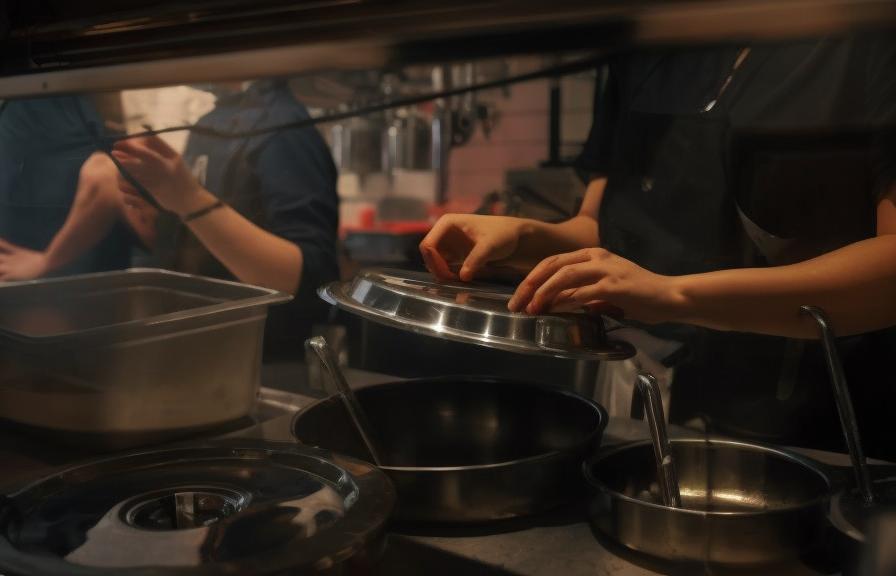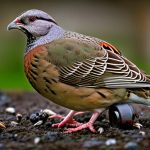Japanese Coturnix quail, also known as Jumbo Coturnix quail, are a popular choice for backyard poultry enthusiasts and small-scale farmers. These birds are native to East Asia and have been domesticated for thousands of years. They are prized for their small size, rapid growth, and high egg production, making them an ideal choice for those looking to raise their own eggs or meat. Japanese Coturnix quail come in a variety of colors, including brown, white, and tuxedo, and are known for their docile nature and adaptability to different climates. They are also relatively low maintenance, making them a great option for beginners or those with limited space.
Japanese Coturnix quail are known for their ability to thrive in a variety of environments, making them a versatile option for those looking to raise poultry. They are also known for their high egg production, with hens laying up to 300 eggs per year. In addition to their egg-laying abilities, Japanese Coturnix quail are also valued for their meat, which is lean and flavorful. These birds reach maturity quickly, with hens starting to lay eggs at just 6-7 weeks of age and reaching full size at around 8 weeks. This rapid growth makes them an attractive option for those looking to raise their own meat in a short amount of time. Overall, Japanese Coturnix quail are a popular choice for those looking to raise poultry for eggs, meat, or both.
Key Takeaways
- Japanese Coturnix Quail are small, hardy birds that are popular for their eggs and meat production.
- When housing Japanese Coturnix Quail, provide at least 1 square foot of space per bird and ensure proper ventilation and protection from predators.
- A balanced diet for Japanese Coturnix Quail includes commercial quail feed, fresh water, and occasional treats like fruits and vegetables.
- Breeding Japanese Coturnix Quail requires a ratio of one male to every four females and proper nesting boxes for egg laying.
- Regular health checks, proper sanitation, and access to a veterinarian experienced with quail are essential for maintaining the well-being of Japanese Coturnix Quail.
Housing and Space Requirements for Japanese Coturnix Quail
When it comes to housing Japanese Coturnix quail, there are a few key considerations to keep in mind. First and foremost, it’s important to provide adequate space for the birds to move around and exhibit natural behaviors. A general rule of thumb is to provide at least 1 square foot of space per bird in the coop or cage. This allows the birds to move around comfortably and reduces the risk of aggression or stress-related behaviors. Additionally, it’s important to provide a secure and predator-proof housing structure to protect the birds from potential threats.
In terms of housing options, there are several choices available for Japanese Coturnix quail. Many people choose to keep their quail in wire cages or hutches, which provide good ventilation and make it easy to clean up droppings. Others opt for a more natural approach and house their quail in an aviary-style setup with plenty of room to roam and access to grass and insects. Regardless of the housing type chosen, it’s important to provide a clean and dry environment for the quail, with access to fresh water and protection from extreme weather conditions. Overall, providing adequate space and a secure housing structure is essential for the health and well-being of Japanese Coturnix quail.
Feeding and Nutrition for Japanese Coturnix Quail
Proper nutrition is essential for the health and well-being of Japanese Coturnix quail. These birds have specific dietary requirements that must be met in order for them to thrive. A high-quality commercial quail feed is a good foundation for their diet, providing the necessary balance of protein, vitamins, and minerals. It’s important to choose a feed specifically formulated for quail, as their nutritional needs differ from other poultry species.
In addition to commercial feed, Japanese Coturnix quail can also benefit from supplemental treats and foraging opportunities. Fresh fruits and vegetables, mealworms, and greens can be offered as occasional treats to provide variety in their diet. It’s important to monitor their intake of treats, however, as overfeeding can lead to nutritional imbalances or obesity. In addition to a balanced diet, it’s important to provide access to clean water at all times, as quail can quickly become dehydrated if water is not readily available. Overall, providing a balanced diet that meets their specific nutritional needs is essential for the health and productivity of Japanese Coturnix quail.
Breeding and Reproduction of Japanese Coturnix Quail
Breeding Japanese Coturnix quail can be a rewarding experience for poultry enthusiasts. These birds reach sexual maturity at a young age, with hens typically starting to lay eggs at around 6-7 weeks old. In order to encourage successful breeding and reproduction, it’s important to provide a suitable environment and diet for the birds. This includes providing adequate space, nesting boxes, and a balanced diet that meets their nutritional needs.
When it comes to breeding Japanese Coturnix quail, it’s important to keep an eye on the male-to-female ratio in the flock. A general rule of thumb is to keep one male for every three to five females in order to prevent aggression and ensure successful mating. Additionally, it’s important to provide a quiet and stress-free environment for the birds, as stress can negatively impact their reproductive abilities. Once the eggs are laid, they can be collected and placed in an incubator or left with the hen to hatch naturally. With proper care and attention to their breeding needs, Japanese Coturnix quail can be prolific layers and successful breeders.
Health and Veterinary Care for Japanese Coturnix Quail
Maintaining the health of Japanese Coturnix quail is essential for their overall well-being and productivity. Regular observation of the birds is important in order to detect any signs of illness or injury early on. Common health issues in quail include respiratory infections, parasites, and injuries from pecking or fighting. It’s important to provide a clean and dry environment for the birds, as well as regular access to fresh water and a balanced diet.
In addition to preventative measures, it’s important to have a plan in place for veterinary care in case of illness or injury. Finding a veterinarian with experience in avian medicine is essential for the health of Japanese Coturnix quail. It’s also important to have a basic understanding of common health issues and first aid measures that can be taken at home. Overall, maintaining the health of Japanese Coturnix quail requires regular observation, preventative measures, and access to veterinary care when needed.
Legal Considerations for Keeping Japanese Coturnix Quail

Before deciding to keep Japanese Coturnix quail, it’s important to be aware of any legal considerations that may apply in your area. In some regions, there may be specific regulations or permits required for keeping poultry, including quail. It’s important to research local ordinances and regulations related to poultry keeping in order to ensure compliance with the law.
In addition to local regulations, it’s also important to consider any potential zoning restrictions that may apply in your area. Some residential areas may have restrictions on keeping poultry or may have specific requirements related to coop size or placement. It’s important to be aware of these restrictions before bringing Japanese Coturnix quail onto your property in order to avoid potential legal issues down the line.
Is Keeping a Japanese Coturnix Quail Right for You?
Keeping Japanese Coturnix quail can be a rewarding experience for those looking to raise their own eggs or meat. These birds are known for their small size, rapid growth, high egg production, and adaptability to different environments. However, it’s important to consider the specific housing, feeding, breeding, health, and legal considerations related to keeping Japanese Coturnix quail before making the decision to bring them onto your property.
In terms of housing requirements, providing adequate space and a secure housing structure is essential for the health and well-being of Japanese Coturnix quail. Additionally, meeting their specific nutritional needs through a balanced diet is essential for their productivity and overall health. Breeding Japanese Coturnix quail can be a rewarding experience when done with proper care and attention to their reproductive needs. Maintaining the health of these birds requires regular observation, preventative measures, and access to veterinary care when needed.
Finally, it’s important to be aware of any legal considerations that may apply in your area before deciding to keep Japanese Coturnix quail. Researching local regulations related to poultry keeping and zoning restrictions can help ensure compliance with the law. Overall, keeping Japanese Coturnix quail can be a fulfilling experience for those willing to provide the necessary care and attention these birds require.
If you’re considering keeping Japanese Coturnix quail, you might also be interested in learning about the ideal floor for a chicken coop. Understanding the importance of a suitable coop floor can contribute to the overall health and well-being of your quail. Check out this informative article on Poultry Wizard to discover the best flooring options for your quail coop.
FAQs
What is a Japanese coturnix quail?
Japanese coturnix quail, also known as Coturnix japonica, are a species of quail native to East Asia. They are commonly raised for their meat and eggs.
Can I keep a Japanese coturnix quail as a pet?
Yes, Japanese coturnix quail can be kept as pets. They are relatively easy to care for and can be kept in a backyard or small enclosure.
What do Japanese coturnix quail eat?
Japanese coturnix quail are omnivores and eat a diet of seeds, grains, insects, and small invertebrates. They can also be fed commercial quail feed.
Do Japanese coturnix quail require special housing?
Japanese coturnix quail require a secure enclosure to protect them from predators. They also need a sheltered area to roost and lay eggs.
Are Japanese coturnix quail noisy?
Japanese coturnix quail are relatively quiet compared to other poultry, making them suitable for urban or suburban settings.
Do Japanese coturnix quail need companions?
Japanese coturnix quail are social birds and do best when kept in small groups. It is recommended to keep at least a few quail together for companionship.
Meet Walter, the feathered-friend fanatic of Florida! Nestled in the sunshine state, Walter struts through life with his feathered companions, clucking his way to happiness. With a coop that’s fancier than a five-star hotel, he’s the Don Juan of the chicken world. When he’s not teaching his hens to do the cha-cha, you’ll find him in a heated debate with his prized rooster, Sir Clucks-a-Lot. Walter’s poultry passion is no yolk; he’s the sunny-side-up guy you never knew you needed in your flock of friends!







